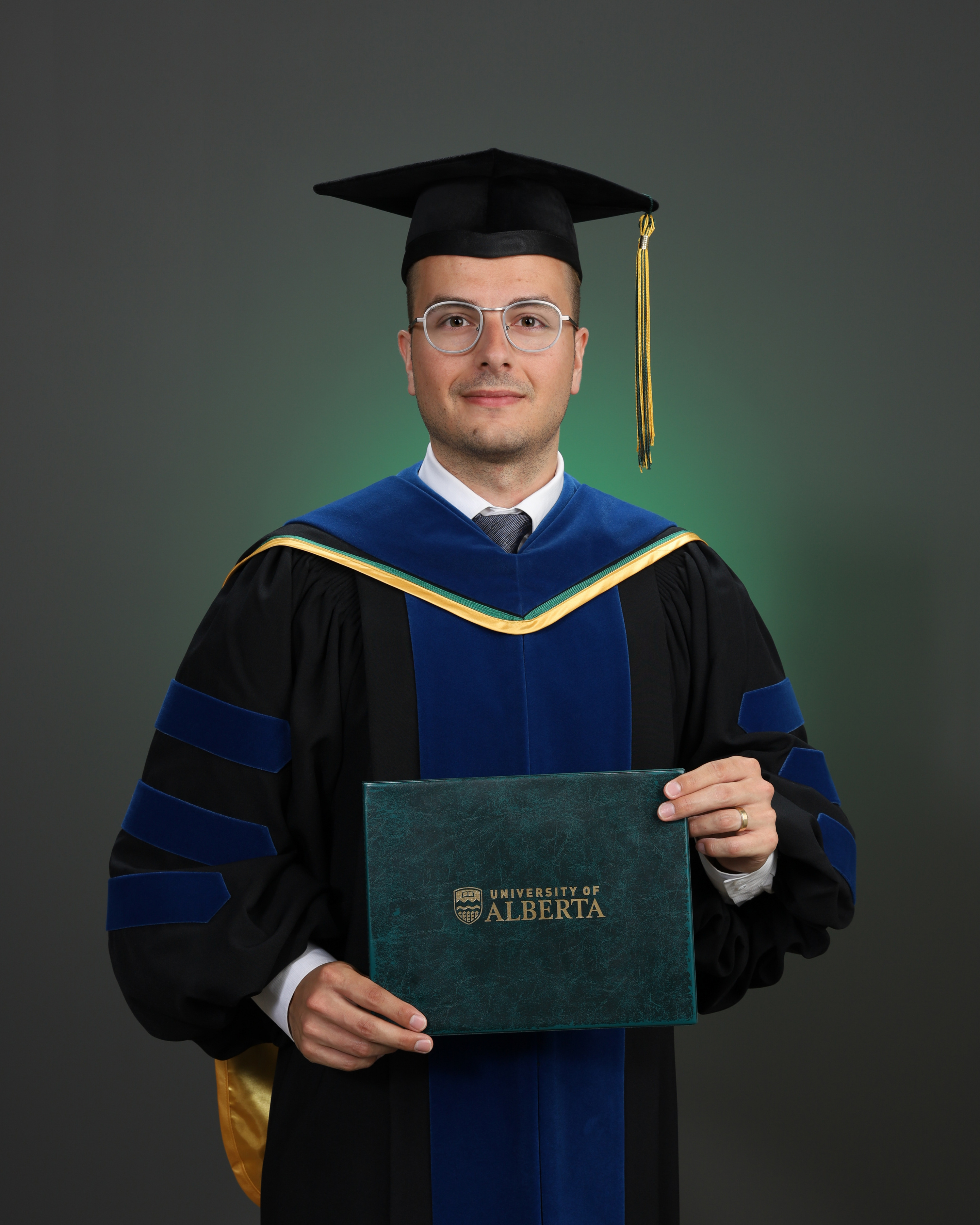Convocation Spotlight: Mathieu Figeys
23 November 2022

When Mathieu Figeys was working as an emergency room registered nurse, he encountered a patient with primary progressive aphasia (a type of dementia that impacts speech-language processes), which sparked his interest in cognitive rehabilitation approaches and led him to pursue graduate studies. During his time in the Rehabilitation Science PhD program he was part of a team, led by Esther Kim, using non-invasive brain stimulation as an experimental approach which may enhance cognition in various populations. As he graduates this fall with his PhD, he hopes to continue making an impact either as a clinician-scientist or in academia.
What are you most proud of from your time in the program?
Throughout the PhD program, I had numerous meaningful interactions with patients and their families while providing experimental brain stimulation. Additionally, I gained significant experience merging my clinical background while working alongside various disciplines including other health-care providers, researchers and engineers; I am grateful for this experience as it truly developed my understanding of what it means to be a multidisciplinary clinician-scientist.
What was the biggest challenge you faced?
I remember sitting in my first PhD-level statistics class and feeling overwhelmed as I did not understand much of the content. My biggest challenge was studying and learning statistics over the last four years. Nowadays I genuinely enjoy discussing various statistical techniques and applying the knowledge gained while performing data analyses.
What lessons will you take from pursuing a degree during the pandemic?
At the beginning of the pandemic, I temporarily returned to work full time as an emergency room nurse. First-hand witnessing the impacts of COVID-19 on patients and their families has taught me to strive for happiness each day, as we don't know how many days we have left. Additionally, our clinical research projects were significantly disrupted due to COVID; this experience has taught me to be open and flexible, and to collaborate as a team to create ideas and solutions to novel issues.
What advice would you give to a student thinking of entering your program of study?
Rehabilitation research is a massive field with tons of areas to specialize in. Reflect upon your interests, hobbies and previous experiences; from here, consider how your previous knowledge and skills can be utilized to help others. For example, if you enjoy neuroscience and music, consider music-based interventions in neurorehabilitation. Also, to all students — remember to enjoy the learning process during your studies!